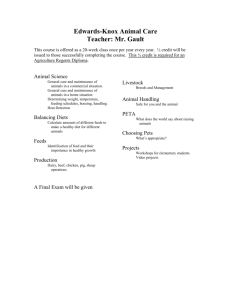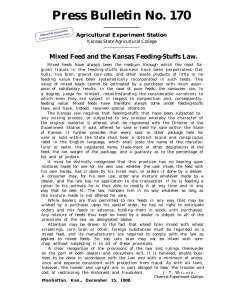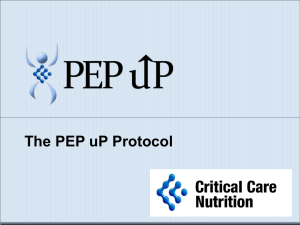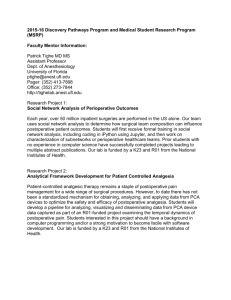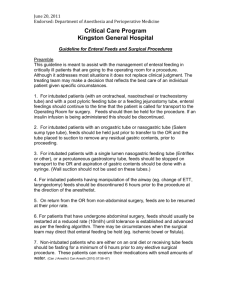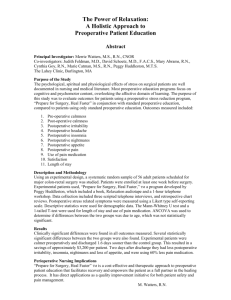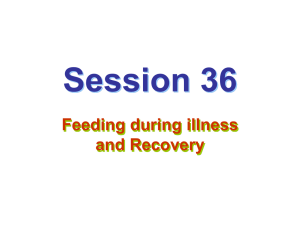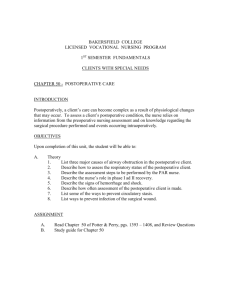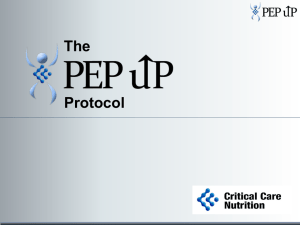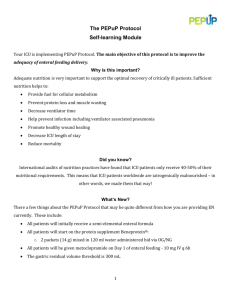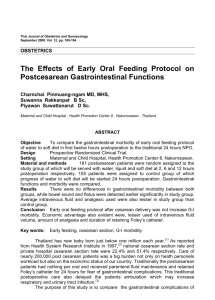Postoperative Feeding Protocol Improves Outcomes
advertisement
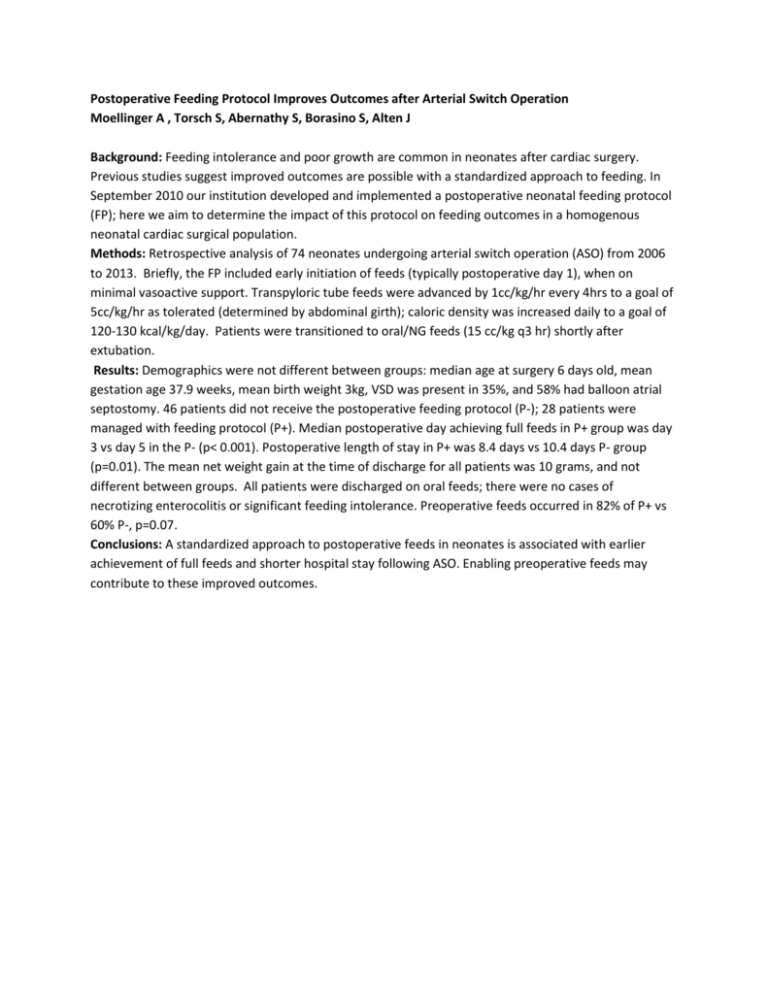
Postoperative Feeding Protocol Improves Outcomes after Arterial Switch Operation Moellinger A , Torsch S, Abernathy S, Borasino S, Alten J Background: Feeding intolerance and poor growth are common in neonates after cardiac surgery. Previous studies suggest improved outcomes are possible with a standardized approach to feeding. In September 2010 our institution developed and implemented a postoperative neonatal feeding protocol (FP); here we aim to determine the impact of this protocol on feeding outcomes in a homogenous neonatal cardiac surgical population. Methods: Retrospective analysis of 74 neonates undergoing arterial switch operation (ASO) from 2006 to 2013. Briefly, the FP included early initiation of feeds (typically postoperative day 1), when on minimal vasoactive support. Transpyloric tube feeds were advanced by 1cc/kg/hr every 4hrs to a goal of 5cc/kg/hr as tolerated (determined by abdominal girth); caloric density was increased daily to a goal of 120-130 kcal/kg/day. Patients were transitioned to oral/NG feeds (15 cc/kg q3 hr) shortly after extubation. Results: Demographics were not different between groups: median age at surgery 6 days old, mean gestation age 37.9 weeks, mean birth weight 3kg, VSD was present in 35%, and 58% had balloon atrial septostomy. 46 patients did not receive the postoperative feeding protocol (P-); 28 patients were managed with feeding protocol (P+). Median postoperative day achieving full feeds in P+ group was day 3 vs day 5 in the P- (p< 0.001). Postoperative length of stay in P+ was 8.4 days vs 10.4 days P- group (p=0.01). The mean net weight gain at the time of discharge for all patients was 10 grams, and not different between groups. All patients were discharged on oral feeds; there were no cases of necrotizing enterocolitis or significant feeding intolerance. Preoperative feeds occurred in 82% of P+ vs 60% P-, p=0.07. Conclusions: A standardized approach to postoperative feeds in neonates is associated with earlier achievement of full feeds and shorter hospital stay following ASO. Enabling preoperative feeds may contribute to these improved outcomes.
